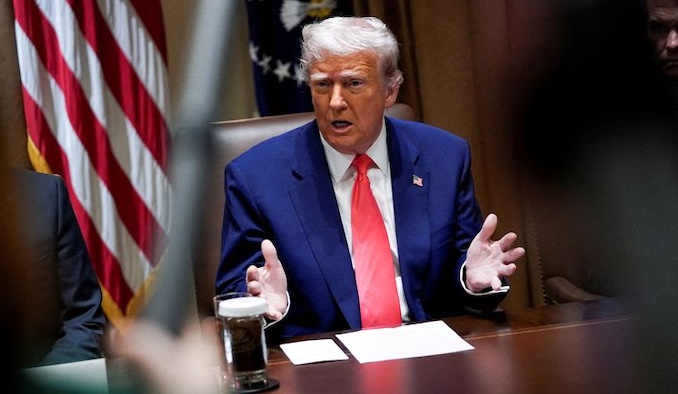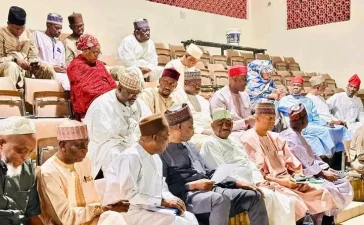US President Donald Trump has announced plans to impose a 100% tariff on movies made in foreign countries, escalating trade tensions and prompting concerns of major disruption to the global film industry.
In a post on his Truth Social platform, Trump said the move was necessary to save America’s “dying” movie industry, which he described as being undermined by foreign governments offering production incentives to lure US studios overseas. He labeled this trend a “National Security threat”, claiming it also serves as a vehicle for “messaging and propaganda.”
“WE WANT MOVIES MADE IN AMERICA, AGAIN!” Trump declared, authorising the US Department of Commerce and the US Trade Representative to begin formal steps toward implementing the tariffs.
While the announcement generated swift responses from union leaders and industry insiders, key details remain unclear, including whether the tariffs would apply to American studios filming abroad, how streaming platforms would be affected, or what exactly qualifies a movie as “foreign-made.”
Recent US blockbusters such as Deadpool & Wolverine, Wicked, and Gladiator II were shot outside the United States, sparking fears that the proposed tariffs could have a widespread impact on both American and international film projects.
Commerce Secretary Howard Lutnick responded to the directive simply, saying: “We’re on it.”
Industry experts were quick to question the practicality of the plan. Timothy Richards, founder of Vue Cinemas, told BBC Radio 4:
“Is it where the money comes from? The script, the director, the talent, where it was shot? The devil will be in the details.”
UK media union Bectu warned that the tariffs could “deal a knock-out blow” to international productions just as they begin recovering from the pandemic and recent economic slowdowns. Bectu’s chief, Philippa Childs, urged the UK government to act swiftly in defence of its film workforce.
Meanwhile, Australia and New Zealand have pledged support for their screen industries. Australia’s Home Affairs Minister, Tony Burke, vowed to defend local filmmakers, while New Zealand Prime Minister Christopher Luxon said his government would advocate strongly for the sector.
Since returning to the White House in January, Trump has imposed a series of tariffs affecting multiple sectors worldwide, claiming they will protect American jobs. However, many economists warn of rising consumer prices and growing instability in the global market.
Adding a celebrity flair to his strategy, Trump recently appointed actors Jon Voight, Mel Gibson, and Sylvester Stallone as “Special Envoys” to revive Hollywood’s domestic business prospects.
Despite the rhetoric, the US remains a dominant player in global film production. According to research firm ProdPro, production spending in the US hit $14.54 billion in 2024, although that figure was down 26% from the previous year. At the same time, production spending rose in Canada, the UK, Australia, and New Zealand.
The tension has already impacted international partnerships. In April, China reduced its quota of US films, citing America’s “abuse of tariffs” and predicting a further decline in Chinese audiences’ appetite for American entertainment.







